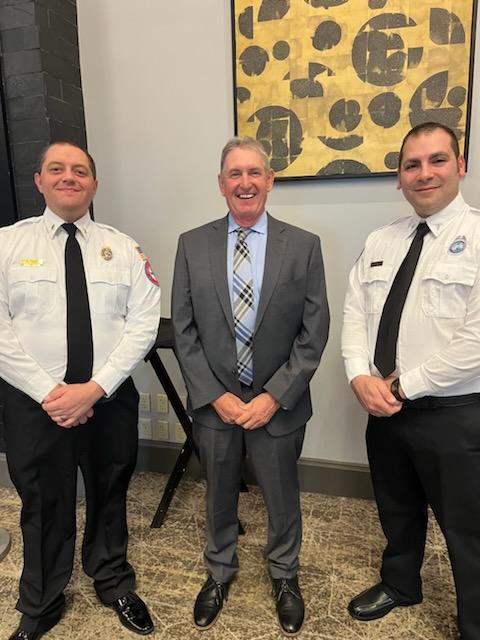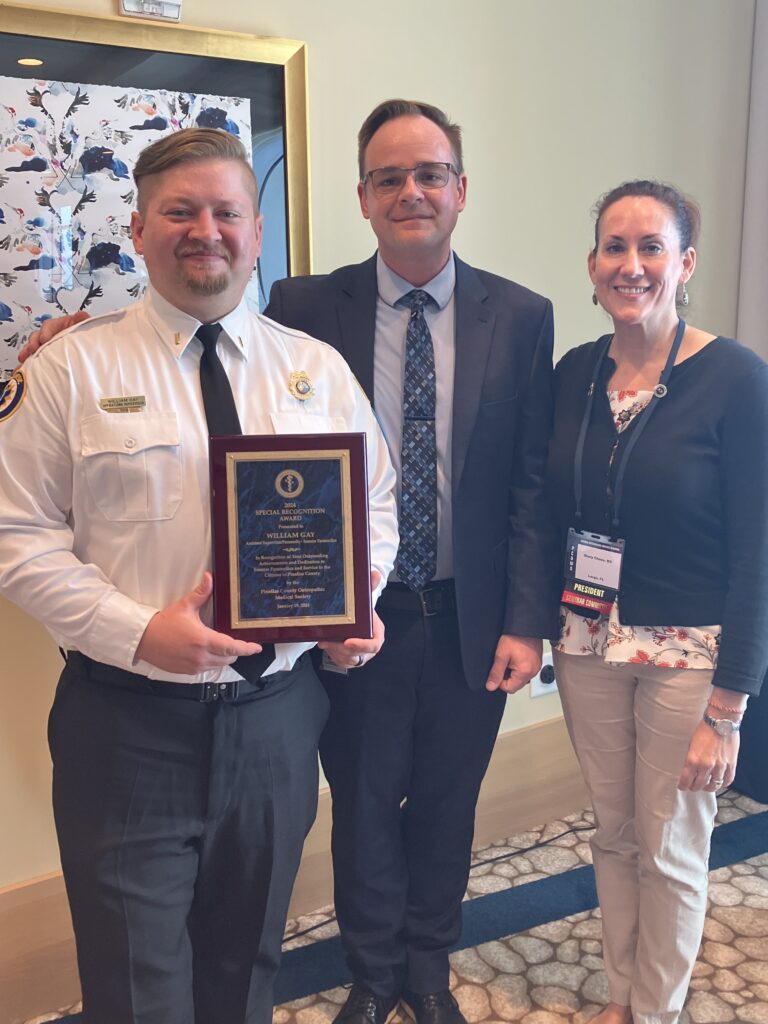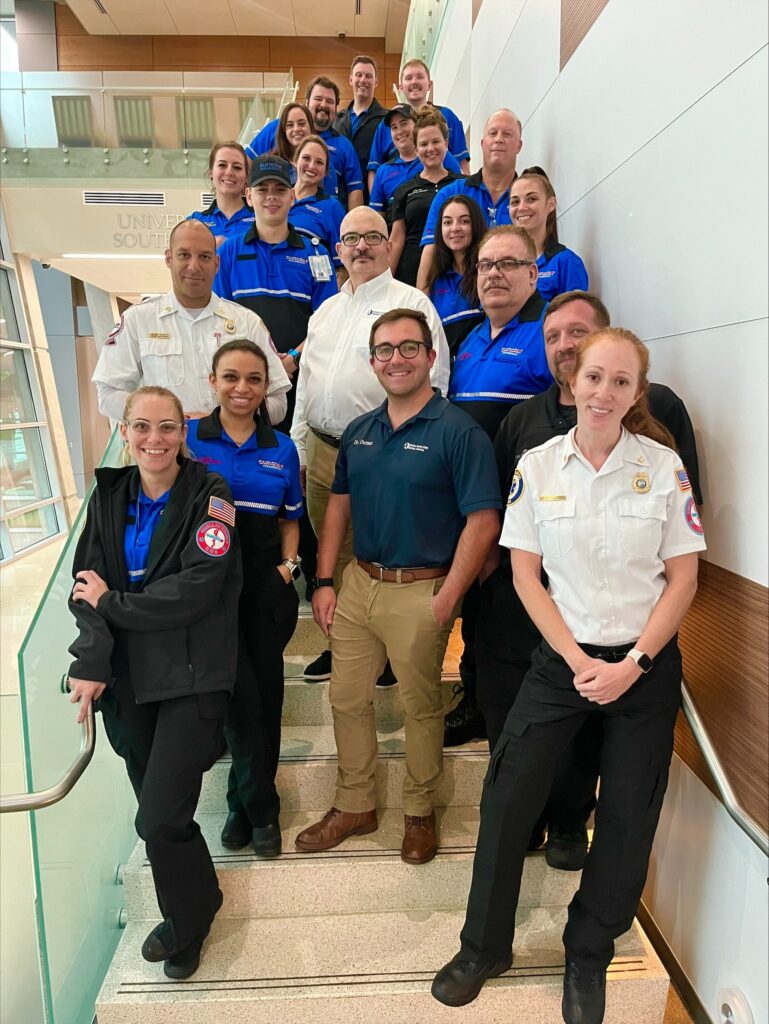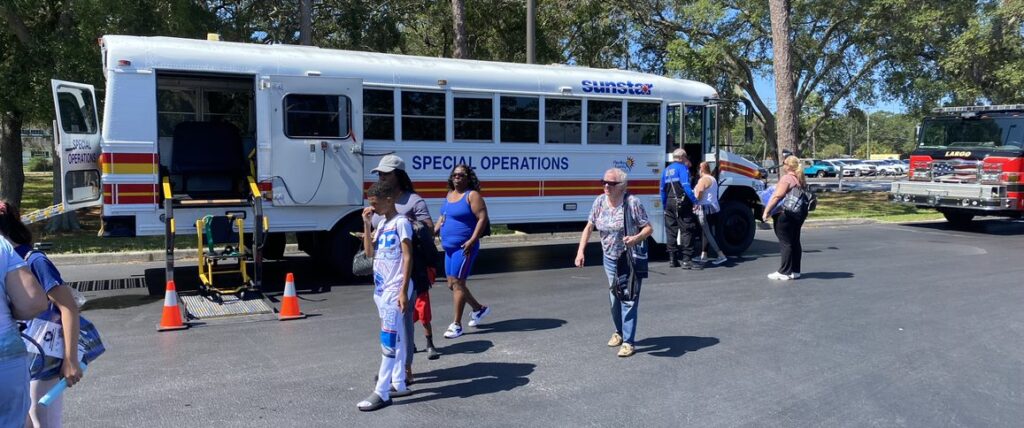Sunstar Paramedics has donated time and funds to many Tampa Bay nonprofits over the years, and last year, the team decided to focus its efforts on one issue to really make an impact. It all started with Melissa Dohme, who was transported by Sunstar in January 2012 after a brutal attack by her ex-boyfriend nearly killed her.
Unfortunately, Melissa is not alone. One in four women will experience domestic violence in her lifetime, and on average, 20 people per minute are victims of physical violence by an intimate partner in the United States. St. Petersburg-based Community Action Stops Abuse (CASA) helped more than 10,000 people last year.
Domestic violence can include willful intimidation, physical or sexual battery, abusive behavior, threats, dominance, control and even murder. Melissa was stabbed 32 times by her ex-boyfriend and was left in the road to die before a couple found her and called 911.
Melissa met the Sunstar employees who helped save her life (read more about the meeting), and that August 2013 meeting inspired Sunstar to join Melissa as an advocate for domestic violence victims.
Sunstar worked with CASA to train its paramedics to become on-the-job advocates for people experiencing domestic violence. And CASA assisted Sunstar in developing a continuing medical education video to help Sunstar’s paramedics when treating a person who has injuries that may have occurred from domestic violence.
The video taught Sunstar’s paramedics to look for clues in a person’s behavior and in interaction between the victim and abuser. Understanding this role is extremely important because paramedics are frequently the first to arrive on the scene.
Some of the key warning signs that may indicate domestic violence include:
- Wearing an unusual amount of clothing for the weather, to hide bruises or other injuries,
- Appearing fearful or anxious in the presence of the abuser,
- Looking to the abuser before answering questions,
- Fearing for the children’s safety when in the presence of the abuser.
The clues provide information to Sunstar’s paramedics about the person’s relationship with the abuser. By being aware of the signs, the paramedics are able to honor the person’s wishes for care while providing resources that she may need.
Most domestic violence incidents are not reported to the police because the person who is being abused fears retribution from the abuser. If a Sunstar paramedic suspects abuse, the paramedic gives the possible victim a nail file that has the CASA phone number on one side, and a Sunstar logo on the other, and explains that she can get help from CASA.
“The nail file is small enough to allow Sunstar’s paramedics and EMTs to discreetly provide it to domestic violence survivors without the abuser noticing,” said Michele Pliner, corporate relations and communications manager at CASA. “And it’s inconspicuous enough to not raise suspicions if it’s found by the abuser, while still providing the survivor with a resource she may need.”
In addition to its year-round efforts, Sunstar donated $500 to CASA last October in recognition of Domestic Violence Awareness Month. The contribution provides a domestic violence survivor with eight nights of safety in CASA’s emergency shelter, including food, individual counseling, support groups, child care, and transportation. Sunstar plans to make another contribution this year.
If you, or someone you know, is experiencing domestic violence, CASA can help. Call CASA’s 24-hour helpline at (727) 895-4912.



